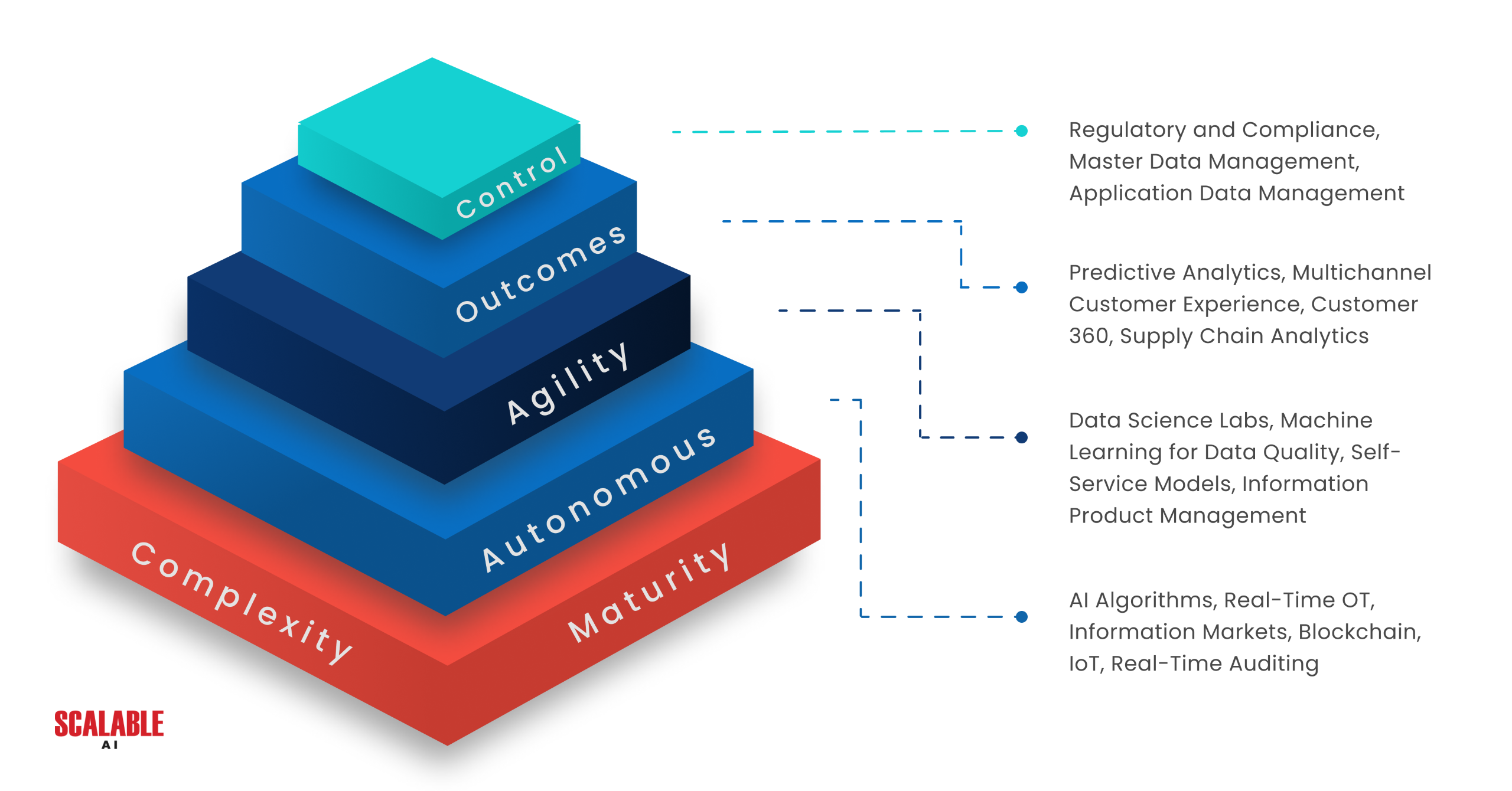Data governance has emerged as a critical aspect of managing the vast amounts of data generated and consumed by financial services organizations. With an increasing focus on data-driven decision-making, regulatory compliance, and customer satisfaction, financial institutions face the dual challenge of ensuring data accuracy and safeguarding its security. Effective data governance is the cornerstone of overcoming these challenges, allowing financial organizations to leverage data for strategic advantage while mitigating risks.
The Crucial Role of Data Governance in Financial Services
Data governance involves the management of data availability, usability, integrity, and security within an organization. In financial services, where data is both an asset and a liability, the stakes are particularly high. The financial sector is heavily regulated, and compliance with regulations such as the General Data Protection Regulation (GDPR), the California Consumer Privacy Act (CCPA), and the Basel III framework is mandatory. These regulations require that data be handled in a way that ensures its accuracy, security, and availability.
Beyond compliance, effective data governance enables financial institutions to improve decision-making, enhance operational efficiency, and build customer trust. However, achieving these outcomes is not without challenges.

Key Challenges in Data Governance for Financial Services
- Data Silos and Fragmentation: Financial institutions often operate in silos, with different departments managing their own data sets independently. This fragmentation leads to inconsistent data, making it difficult to obtain a unified view of the organization’s operations. The lack of integration across data sources hampers the ability to make informed decisions and complicates regulatory reporting.
- Data Quality and Integrity: Ensuring data quality is another significant challenge. Poor data quality can result from multiple sources, including manual data entry errors, inconsistent data formats, and outdated information. Inaccurate data can lead to incorrect financial reporting, flawed risk assessments, and misguided business strategies.
- Regulatory Compliance: Financial institutions must navigate an increasingly complex regulatory environment. Keeping up with changing regulations and ensuring that data management practices comply with these rules is a continuous challenge. Non-compliance can result in hefty fines, legal penalties, and reputational damage.
- Data Security and Privacy: Protecting sensitive financial data from breaches and unauthorized access is a top priority. As cyber threats become more sophisticated, financial institutions must implement robust security measures to safeguard their data. Data governance frameworks must incorporate stringent security protocols to prevent data breaches and ensure privacy.
- Scalability and Flexibility: The rapid growth of data volumes, driven by digital transactions, customer interactions, and market data, necessitates scalable data governance frameworks. Financial institutions must ensure that their data governance strategies can adapt to evolving business needs and technological advancements without compromising quality or compliance.
Strategies to Overcome Data Governance Challenges
- Establishing a Centralized Data Governance Framework: To address data silos, financial institutions should implement a centralized data governance framework that integrates data across all departments and functions. This framework should define clear data ownership and stewardship roles, ensuring that data is consistently managed and accessible across the organization. By breaking down silos and fostering collaboration, institutions can achieve a unified view of their data assets.
- Implementing Data Quality Management Processes: Ensuring data quality requires the adoption of robust data quality management processes. Financial institutions should implement automated data validation tools to detect and correct errors in real time. Regular data audits and cleansing activities can also help maintain data accuracy and integrity. By prioritizing data quality, organizations can enhance the reliability of their financial reporting and decision-making processes.
- Adopting a Compliance-First Approach: To navigate regulatory challenges, financial institutions must adopt a compliance-first approach to data governance. This involves staying up-to-date with regulatory changes, conducting regular compliance assessments, and implementing data management practices that align with regulatory requirements. By embedding compliance into their data governance strategies, institutions can minimize the risk of non-compliance and associated penalties.
- Enhancing Data Security and Privacy Measures: Data security should be a core component of any data governance strategy. Financial institutions should implement encryption, access controls, and monitoring systems to protect sensitive data. Additionally, regular security assessments and incident response plans can help institutions quickly identify and mitigate potential threats. Ensuring data privacy through anonymization and data masking techniques can further reduce the risk of breaches.
- Leveraging Advanced Analytics and AI for Scalability: To manage the growing volume and complexity of data, financial institutions should leverage advanced analytics and artificial intelligence (AI) tools. These technologies can automate data processing tasks, identify patterns, and provide actionable insights, enabling institutions to scale their data governance efforts effectively. By integrating AI-driven solutions into their data governance frameworks, organizations can improve data accuracy, enhance decision-making, and maintain compliance at scale.
Conclusion
Effective data governance is essential for financial institutions to navigate the complex landscape of regulatory compliance, data quality, and security. By implementing centralized frameworks, prioritizing data quality, adopting a compliance-first approach, enhancing security measures, and leveraging advanced technologies, financial services organizations can overcome the challenges of data governance. These strategies not only ensure compliance but also empower institutions to unlock the full potential of their data, driving growth and maintaining a competitive edge in the industry.
Read Whitepaper Data Dilemmas: Solving Financial Services Challenges
